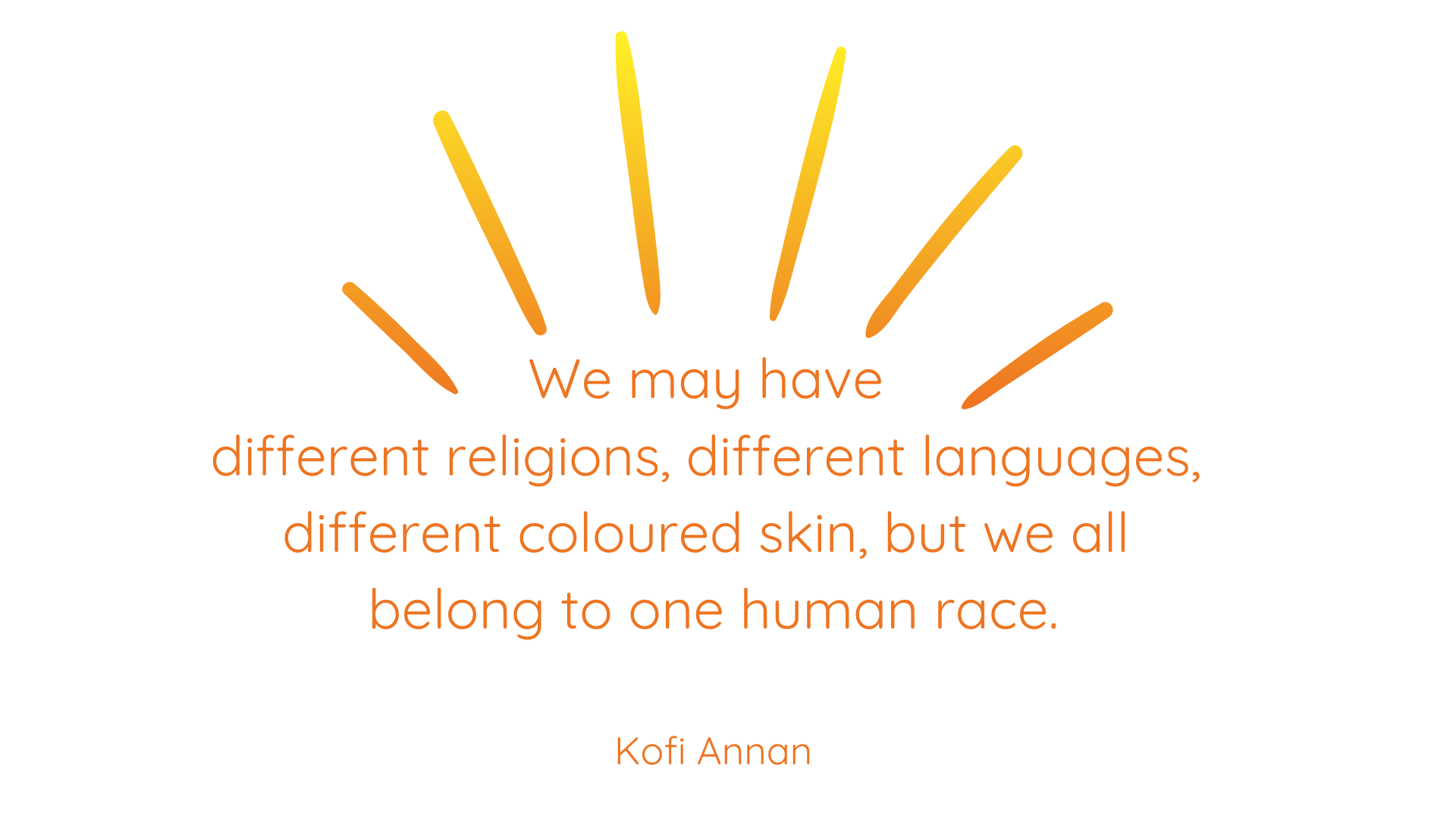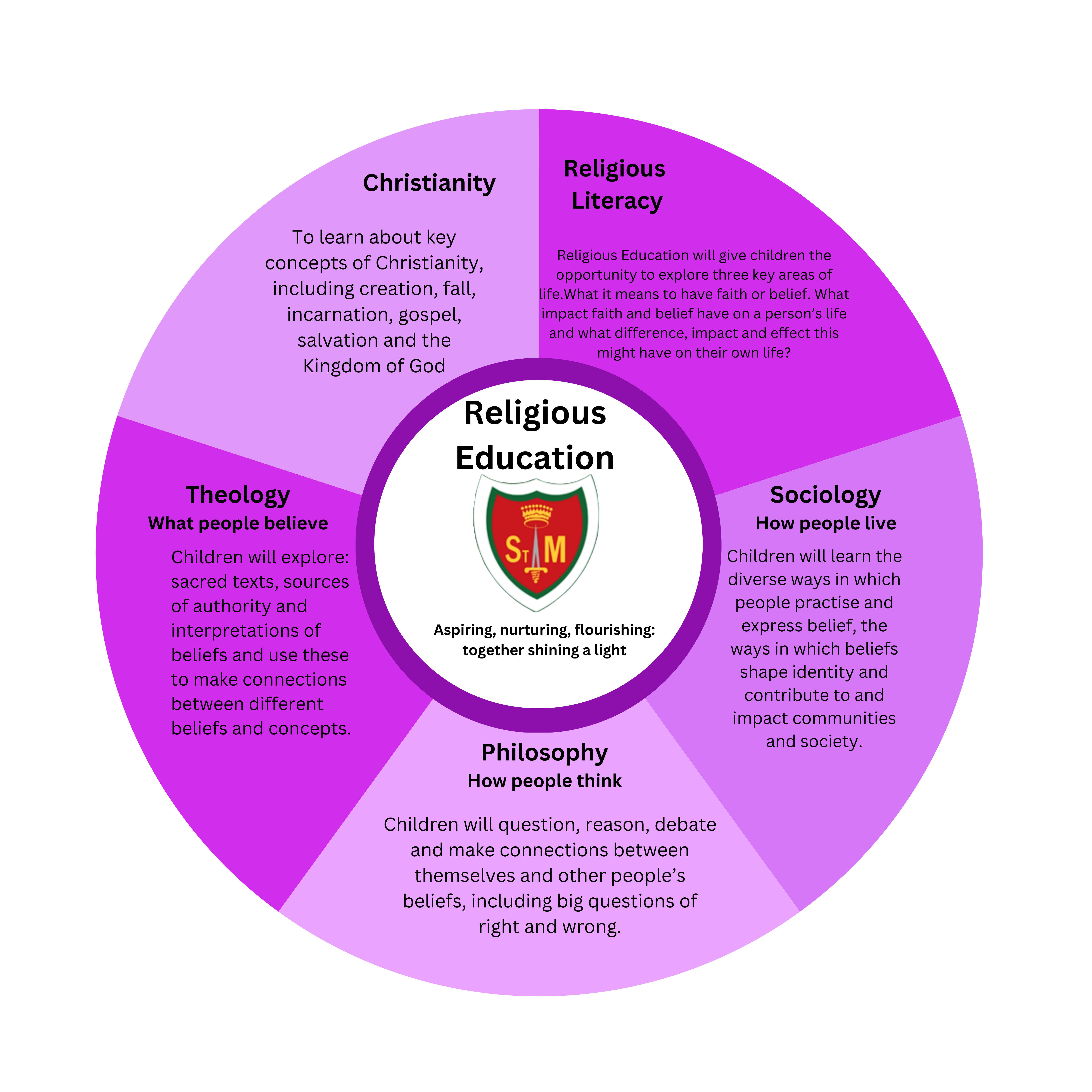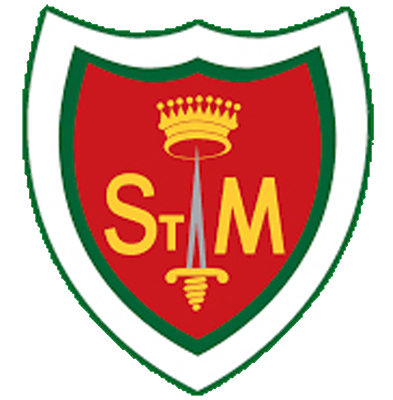RE

Intent
At St Mary’s we love shining a light on faith and belief. RE has a place like no other subject in our curriculum in that it gives time to explore 3 key areas of life: What does it mean to have faith or beliefs? What impact do faith and beliefs have on a person’s life? What difference, impact and effect might this have on my own life? Our RE curriculum is designed to help each child flourish in understanding the world in which they live and most importantly, who they are within it. ‘Religious literacy’ is our aim.
We explore key concepts, values and some fundamental questions of life such as joy, salvation, forgiveness, peace from the heart of 4 world religions and their followers: Christian, Jewish, Muslim, Hindu. Humanist beliefs are also studied in Year 6.
We realise that RE is uniquely placed to:
· Explore and understand global diverse living faith
· develop understanding of the ways in which beliefs affect and influence people in their behaviour, practices and outlook.
· develop knowledge, empathy and respect within religious and non-religious people
· promote SMSC
· ask open, honest and candid questions
· engage with challenging questions of meaning and purpose of life
· give space and time for pupils to reflect on their own beliefs and values
· encourage learners to develop a positive attitude towards other people who hold religious beliefs and world views, different from their own.

Implementation
Our curriculum follows 2 outstanding resources: ‘Understanding Christianity’ for our units on Christianity, and ‘The Emmanuel Project’ for all other faiths and world views. Both resources follow a similar format, exploring a key concept through 3 strands:
Strand 1: Making Sense (theology) – Children will find out what people believe through key concepts, exploring a text or narrative within that faith as well as significant figures
Strand 2: Understanding the Impact (sociology) – Pupils will explore individual and community practices within contemporary examples
Strand 3: Making connections (philosophy) – Pupils will evaluate, reflect and consider others’ beliefs alongside their own thoughts, views and values
Each Year group explores 6 units per academic year. All units are built around an enquiry question and explored through our learning journeys. Each learning journey provides key vocabulary and an aspirational figure or concept (on which we ‘shine a light’). RE is taught through a range of activities and includes visitors and visits to places of worship, as we believe that this helps us to make sense of other’s beliefs and world views.
Within the taught units of Christianity, key concepts at the heart of the Christian faith (God, Incarnation, Salvation, Gospel, Creation) are revisited within different key stages. Within the taught units of other world faiths, each one of the 3 main faiths explored, is revisited within 2 different year groups. We have specifically chosen this structure to nurture and deepen pupil’s understanding of faith and beliefs, and allow time to make links with the core concepts of each belief system.
Curriculum overview
Progression Documents
Impact
The impact of our RE curriculum is seen in the understanding, articulation and respect our pupils show as they journey through the school. Pupil curiosity, empathy and consideration has been shaped and nurtured as they progress from one year to the next, fuelled by knowledge, experience, times of discussion and debate, and purposeful times for reflection.
We use formative assessment during lessons and summative assessment at the end of each unit, where opportunity is given to reflect on key steps within the concept explored. Teacher observations and pupil voice are incorporated to create a more valuable and engaging learning experience where pupils leave as religiously literate, reflective pupils.
